How important is pursuing a code of ethics and acting professionally for a professional in society? What is the true definition of a professional, as perceived by society? Research on the public perception of professionals in Malta shows that several reasons factor in the way professions represent themselves, as well as how the public views them respectively.
A seminar held at the Cavalieri Art Hotel in St Julian’s, by the Malta Federation of Professional Associations on the Added Value of the Professional in Society took on ethics from its roots, discussing professional’s code of ethics, as well as perceived rights and obligations of professionals and their clients. The project was funded through the Voluntary Organisations Project Scheme managed by the Malta Council for the Voluntary Sector.
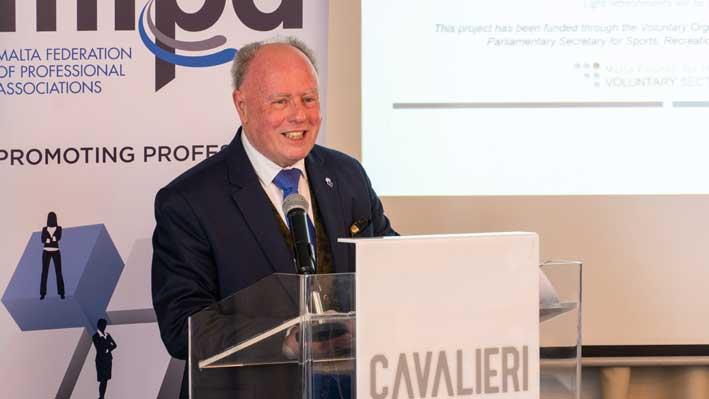
President of the MFPA Ben Rizzo said that as a federation, the MFPA is concerned with adding value of the professionals in society by creating the opportunity for several organisations to collaborate and discuss the direct impact they have on society.
“Adding value also comes by abiding by our set of ethics while leading our lives in the profession, as well as remain organized and contribute to the civil society, all the while upgrading ourselves to remain as real as possible in society,” Rizzo said.
Rizzo said that MFPA represents about 10,000 professionals, and is affiliated with the European Council of the Liberal Professions (CEPLIS) to continuously tackle issues ongoing in Europe, naming the Ukrainian conflict as an example.
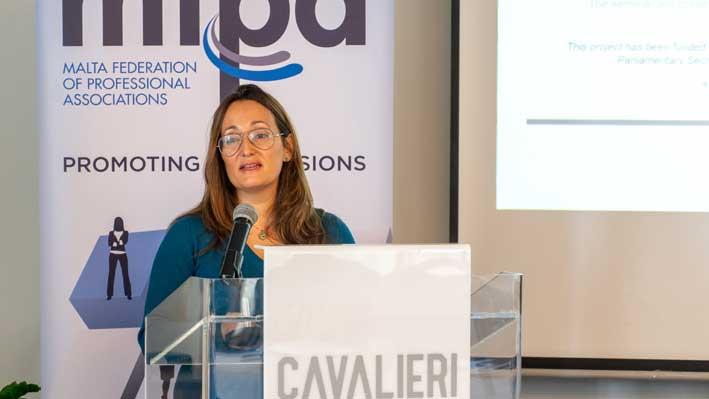
MFPA Chief Executive Officer Norma Camilleri said that professional ethics is not simply an obligation, but it is a pillar on which the client and professional relationship is built. Camilleri said that the MFPA seeks for funds to carry out projects where the importance of professional ethics is discussed.
Camilleri also said that in recent years, research was done on the needs of professionals in Gozo, where the difficulties of being a professional in Gozo were addressed, as well as research among students to determine their knowledge on professional ethics.
“These projects show what needs to be done for change, to contribute for a better quality of life for citizens,” Camilleri said.
The seminar addressed research done by Esprimi on behalf of MFPA, which showed the perception of the general public on professionals in Malta.
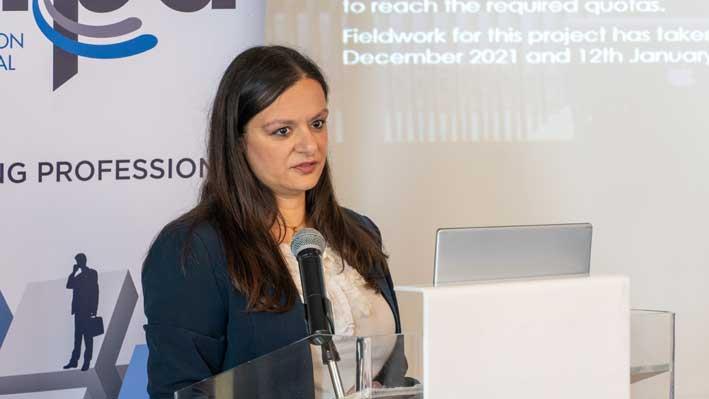
Director of Market Research Esprimi Vanessa Bajada said that the quantitative research, where 501 members of the public were interviewed, reflected a wide spectrum of ages and genders.
The research concerned persons of ages 18 and over who have used services of a professional in the past 12 months. Fieldwork for the project has taken place between the 18 December 2021 and 12 January 2022. Social media campaigns to reach out to respondents as well as telephone interviews were the primary means of methodology.
The first question, which consisted of a generic question regarding what is the first thing that comes to respondent’s minds when hearing the phrase, ‘services of a professional’ gathered mixed replies, said Bajada.
25% of the respondents, most of which were aged 35 and up, replied that physical and mental health services was the primary thought to come to mind. Legal services followed suit with 21%. Services by persons with a high level of education came in with 19% with the respondents being mostly in the 18 to 24 age range. 18% of people said that they regard services of professions as people who are well trained, experienced and specialized in what they do. Only 16% of respondents, who were aged between 25 and 34, said that professions are qualified persons who own a license or a warrant.
Another question concerned what the public prioritizes when choosing a professional to work with, to which the 52.2% majority said that sound work ethic is the most important. Placing second was reasonable fees by the professional with 48.7%.
The ‘reasonable fees’ reason featured almost all age bands, except those aged 65 and up. Respondents aged 18 to 34 showed the most sensitivity towards reasonable fees being a priority.
On the ratings of professionals in Malta on specific aspects, such as ethical practice, accessibility, flexibility and affordability of professionals, mean scores were devised, placing the classifications at 3.17, 3.04, 3.02 and 2.24 respectively.
The primary mode of how people go about looking for a professional was my word of mouth, following by recommendations by other professionals and online research, which, however, were to a much lesser extent.
The research showed that a 4.12 mean score of mental health professionals are guided by professional ethics, with health professionals following suit with a 3.99 score. Teaching professionals, financial professionals, legal professionals, and construction professionals provided scores of 3.83, 3.53, 3.44 and 3.12 respectively.
70% of respondents said that they are likely to seek a secondary opinion when dealing with a health professional, with reasons being, for example, when there is a diagnosis of serious health problems, Bajada explained. Other reasons included making sure the right decision was made by the client, and ensuring reliability and correctness, especially in the case of the legal professions.
Lodging complaints was not a common occurrence for respondents aged 65 and up, and 45.9% of all respondents said that they would go directly to the professional in case of a problem. 25.3% and 24% said that they would resort to the authority that regulates the profession, or the organisation that represents the concerned profession.
The survey also highlighted certain customers expect perceived rights and obligations from the professional, such as the need to receive regular training irrespective of how many years they have studied, as well as receiving training in ethics.
Bajada said that the key points from the results of the research showed that the perception of professionals is changing. She said that ethics in particular has become more widely acknowledged. The perception for the older respondents of associating professions primarily towards the more ‘traditional’ professions, such as doctors and lawyers, is decreasing by time. The highest proportion of mentions amongst respondents aged 18 to 24 was that they are services given by persons with a certain level of education and academic background.
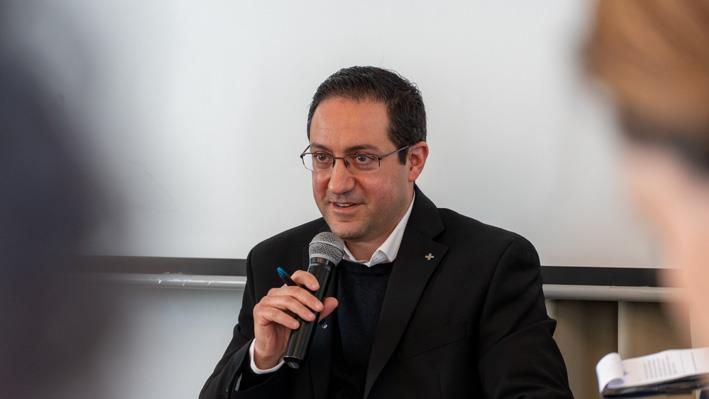
Lecturer at the Faculty of Theology at the University of Malta Carlo Calleja said that the curriculum in schools is aiding in the change in traditional thinking, of what is perceived as a professional. He said that in the 1960s, the professional was the doctor, the lawyer and the priest, and the public had a certain ‘blind faith’ in these professions.
“The new generation has lost trust with the institutions representing traditional professions, and so the curriculum must not only be based on the theoretical material, but also the soft skills which professionals need to ensure trust from their clients,” Calleja said. He said that critical thinking should be practised by everyone, and the professional must be seen as an individual, and not solely be trusted on their credentials and titles.
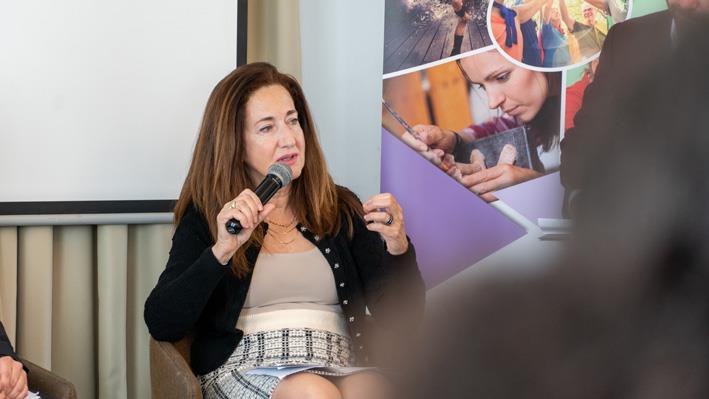
Chairperson of the Malta Competition and Consumer Affairs Authority (MCCAA) Helga Pizzuto said that with regards to reasonable fees and whether they attract clients towards certain professionals, the professional must set fees which are fair and reasonable, and must not take advantage of the client, as ultimately, that would breach the trust between the client and the professional.
Pizzuto continued to say that the older generation tended to have a blind trust, whilst nowadays, this is more questioned. She said that respondents aged 35 to 44, who replied that reasonable fees are the aspect which they look out for the most, have many things to pay for, such as housing and schooling. “Additional fees are an added weight for these individuals,” Pizzuto highlighted.
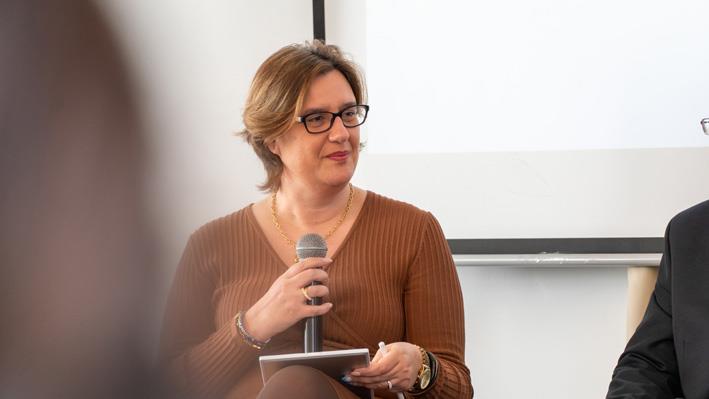
Clinical psychologist and family therapist Roberta Farrugia Debono noted that the fact that the majority of the respondents said that mental health professions adhere to professional ethics shows good communication skills between the client and the professional. She said that a contributing factor to these skills, is the fact that members of her profession must undergo periodical supervision to retain their warrant, and consequently keep up to date with their performance as a professional and ethics amongst other things
Farrugia Debono said that the professional must receive and investigate both positive and negative feedback, to continue to work on trust between the professional and the client.
Farrugia Debono said that to be a professional, is to include that in one’s life outside the office, where one must be careful on what they say and do, on social media or elsewhere. She said that clients are less likely to complain in cases where professionals communicate well.
The event was moderated by The Malta Independent Editor in Chief Neil Camilleri.
Photos: Giuseppe Attard